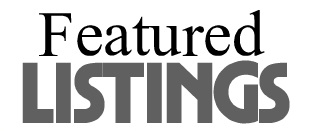When should one begin the planning for the sale of your business?
It has been said that that thought process should begin when you start your business. So Entrepreneurs, while in the initial throes and excitement of the planning stages of starting a new venture, it is also appropriate to broach the subject of exit strategy. Too often the daily process of running and growing the business disallows the consideration of an exit strategy.
Do You Have An Exit Plan?
A recent study (as printed below) conducted revealed that 75% of small business owners do not have an exit plan.
SACRAMENTO, Calif., Sept. 29 /PRNewswire/ — The California Association of Business Brokers (CABB, a non profit trade organization) says that there is one thing that most small business owners fail to do when preparing to sell their business: have an exit strategy in place. A recently reported study conducted by Harris Interactive found that among those small business owners surveyed, three out of four small business owners did not have an exit plan developed.
An Exit strategy may be transitioning your business to family members, a planned merger, a planned closure, a planned sale of your business, or other possibilities. The below is focused on issues related to the planned sale of your business.
How NOT to Consider an Exit Strategy:
- Wake up one morning and say I hate what I am doing, call a business broker and ask to sell your business ASAP. Now if you wake up 60 morning in a row and hate what you are doing it may warrant a call to a business broker to discuss the potential sale of your business.
- Wait until an unexpected illness strike you, before you begin the process of exploring the strategy of setting up your business for sale.
- Enjoy the good years of business success and allow this success to keep you from developing an exit strategy, and then wait until your business is faltering and can no longer support its own cash flow requirements and then be forced to sell your business in this adverse environment.
Things TO DO when Considering an Exit Strategy
- Give yourself time, pick a time horizon 2-3+ years out to perform task that would aid in the sale of your business.
- Try to understand the approximate value of your business. Your business may be one of your most significant assets, and just knowing it for net worth purposes and planning purposes can be invaluable. www.sellabusinessflorida.com
- Focus on improving the quality of your numbers and your records. Look at your income statements, and balance sheets objectively and see if numbers stand out or jump out as hard to explain, or unusual. Any reports or figures that results in error that are “carried forward”, or allowed to exist – have them reconciled.
- Work on systems. The more systems in place to more well thought out your business looks. The more systems in place, adds value to a new owner and improves both value and the likelihood of success to the new owner that buys your business.
When is a good time to BEGIN the process of evaluating a good exit strategy for your business? TODAY







